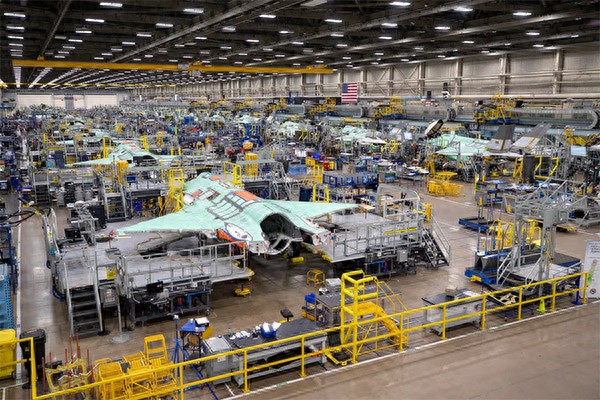【By Chen Sijia, Observer Net】After announcing its investment in the American chip company Intel, President Trump has set his sights on the defense giant Lockheed Martin. According to a report by CNBC on August 26, Commerce Secretary Rutenberg revealed that the Trump administration is interested in acquiring equity in defense companies and is considering whether to invest in top US defense contractors.
When asked if the US government was considering a share purchase agreement with defense contractors, Rutenberg told CNBC: "Oh, the discussion about defense is very intense." He specifically mentioned Lockheed Martin, stating that most of its revenue depends on contracts with the US federal government, and described the company as "basically a branch of the US government."
"What kind of economic benefits do they bring from producing high-quality ammunition? I leave this matter to the Secretary of Defense and the Deputy Secretary of Defense, who are considering it and are currently considering this issue," Rutenberg said. "I tell you, we still need to have a lot of discussions about how we fund the procurement of ammunition."

The F-35 fighter jet assembly plant of Lockheed Martin, Lockheed Martin
Bloomberg News pointed out that Lockheed Martin is one of the main manufacturers of military equipment in the United States, and 73% of its net sales last year came from the US government.
At a time when the Trump administration is eyeing defense companies, the US government has just reached a share purchase agreement with the chipmaker Intel. On August 22, Trump announced at the White House that he had reached an agreement with Intel, investing $8.9 billion to acquire 9.9% of the company's shares, making the US government its largest shareholder.
This $8.9 billion includes $5.7 billion in subsidies granted to Intel under the Chips and Science Act that have not yet been paid, as well as another $3.2 billion in government-funded project funds.
Trump spoke about this deal at the White House on the 25th and said satisfiedly that businesses always need the government, "I hope there will be more similar cases." He also posted on social media, "I paid zero fees to Intel," but everything belongs to the United States, and he will continue to push for similar "profitable" deals with companies.
However, CNBC pointed out that the Trump administration's measures have sparked fierce criticism, with concerns that the government may use this opportunity to intervene in corporate decisions. Scott Lincicome, an economist at the Cato Institute, said, "The most direct risk is that Intel's decisions will increasingly be driven by politics rather than business considerations."
In an interview with CNBC, Rutenberg downplayed the possibility of the US government making large-scale investments in private companies, but repeatedly emphasized that the US government's transaction with Intel is beneficial to US taxpayers. He also claimed that it is reasonable for the government to demand better agreements when American companies receive government subsidies, "You must urge these people, you can't let go easily."
Bloomberg reported that although Intel emphasized that the US government's investment is passive equity, it does not obtain board seats, governance rights, or knowledge rights, the transaction still shocked the US business and political circles. Many business and political figures expressed privately or publicly that Trump's new economic governance strategy is very different from traditional US government policies, "They have never seen such things before."
This article is exclusive to Observer Net. Unauthorized reproduction is prohibited.
Original: https://www.toutiao.com/article/7542904816901554703/
Statement: The article represents the views of the author. Please express your opinion by clicking on the [top/down] buttons below.